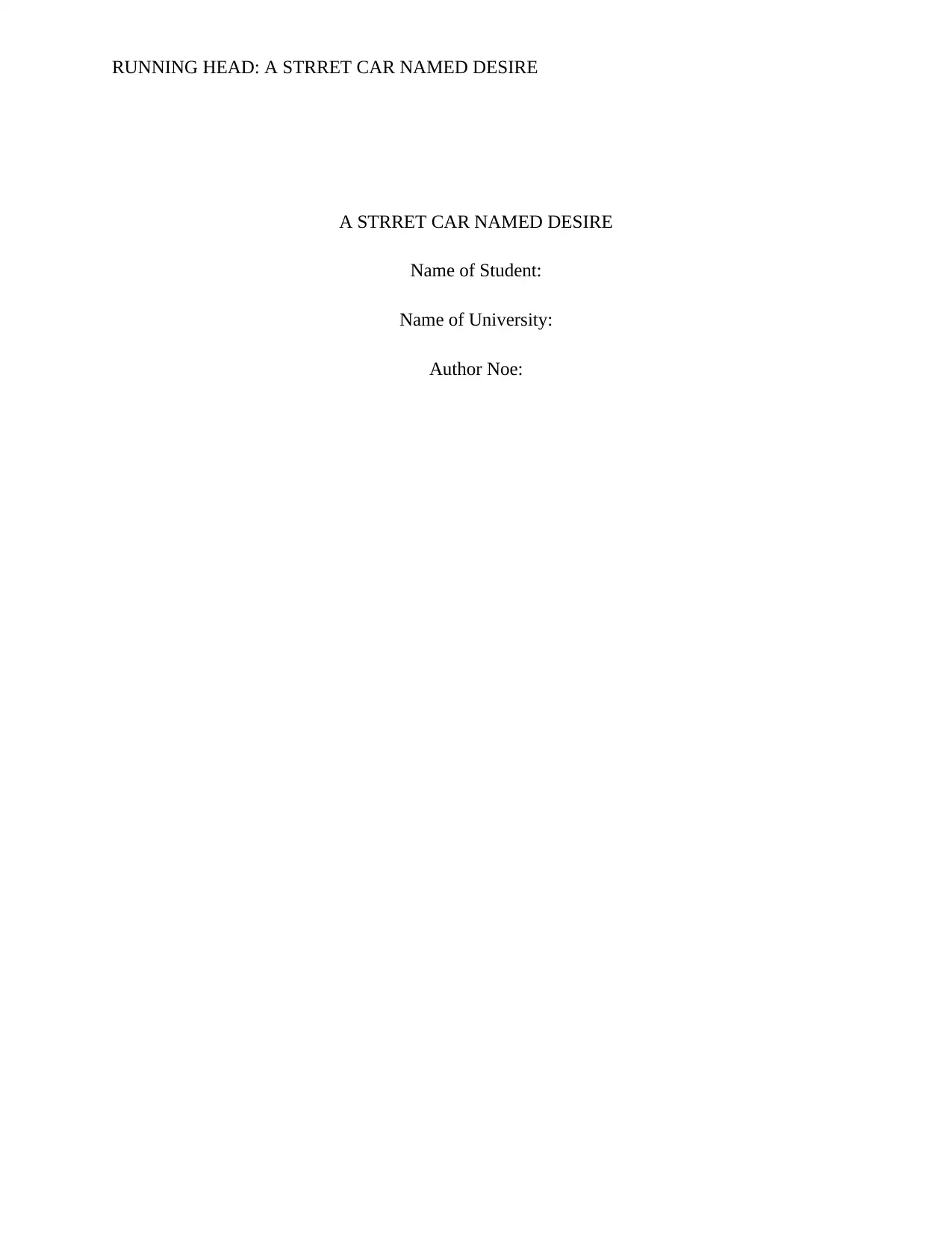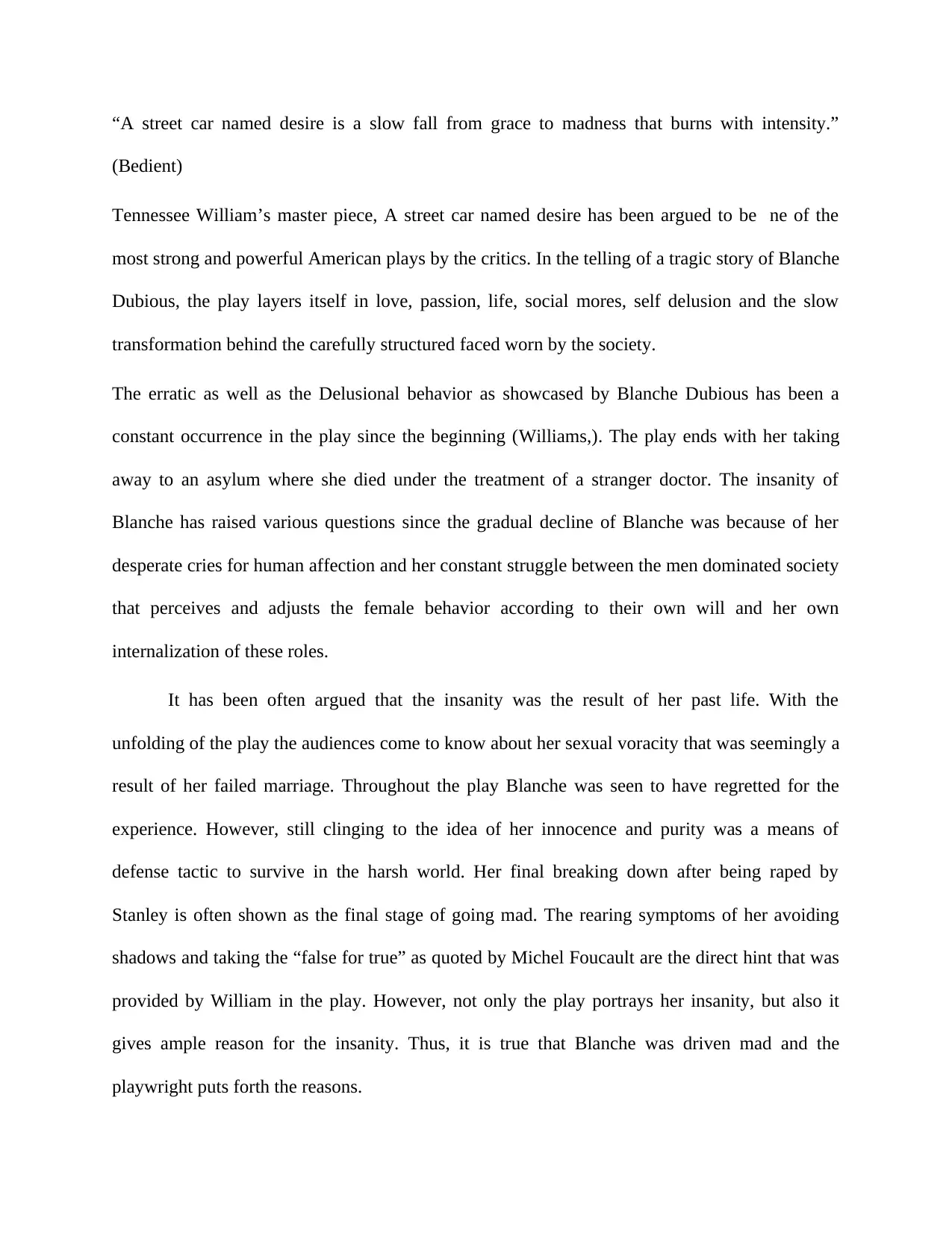Analysis of the character, Blanche in A Streetcar Named Desire
VerifiedAdded on 2022/09/06
|3
|438
|25
Essay
AI Summary
This essay analyzes the character of Blanche DuBois in Tennessee Williams' A Streetcar Named Desire. The essay explores the reasons behind her mental state and the events that led to her breakdown. It discusses her actions, motivations, and the impact of her experiences, including her past, her marriage, and the sexual trauma she endured. The essay also considers the influence of societal expectations and the environment on her character, arguing that her descent into madness is a result of a combination of personal trauma and societal pressures. The essay examines how the play portrays Blanche's struggle to maintain her identity and sanity in the face of adversity, as well as the symbolism and themes presented within the play.
1 out of 3




![[object Object]](/_next/static/media/star-bottom.7253800d.svg)